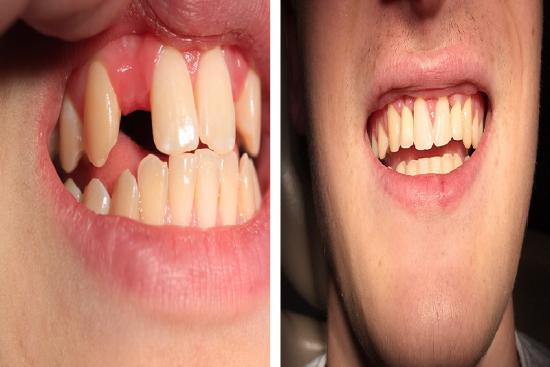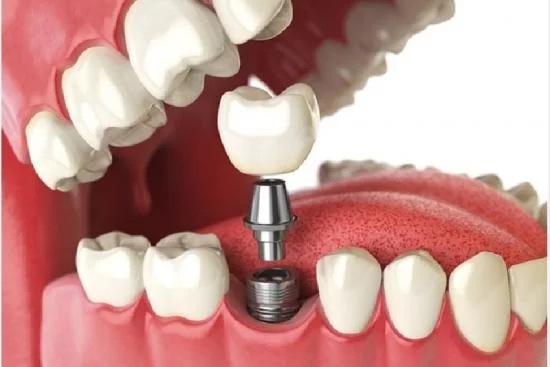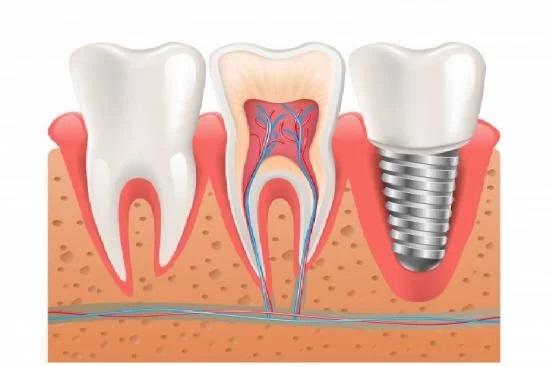Dental implants
Dental implants are the process of implanting an artificial root in the form of a screw to replace the natural root
They are made of titanium, ceramic, or zirconia.
 Resume daily activities 3 to 7 days after implant placement
Resume daily activities 3 to 7 days after implant placement
The average implant life is at least 10 years
Dental implants aim to cover the space left by one or more missing or extracted teeth, in the upper or lower dental arch.
Dental implants consist of three main parts: the internal screw (or the so-called retainer), the abutment (or the so-called transmucosal component) and the tip of the tooth (or the artificial crown).

For dental implants, it is absolutely essential that the gums and bone tissue of the upper or lower jaw are in good health.
In other words, dental implants can be performed in one session or in two separate sessions.
Some diseases and factors can cause side effects during the dental implant process. Such as heart disease, pregnancy, osteoporosis and diabetes
In these cases, precautions must be taken before beginning implant placement.

How do you maintain dental implants?
Maintaining dental implants requires an annual medical examination and brushing the teeth at least twice a day with a good brush, which must be renewed periodically.
The patient should drink fluids during the first 3 days of the surgery, then gradually return to normal foods.
In short, the risk of complications is reduced if good and proper oral hygiene is followed


